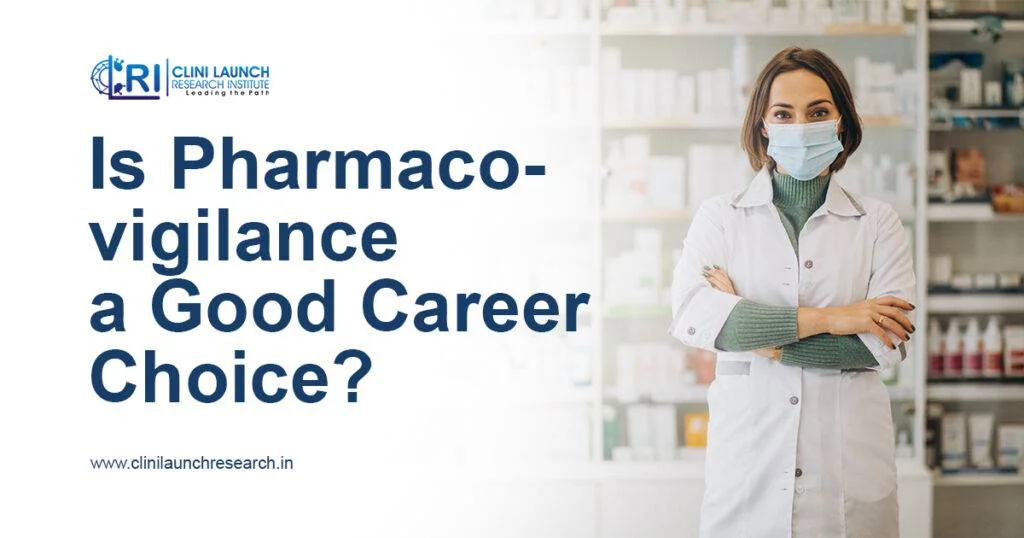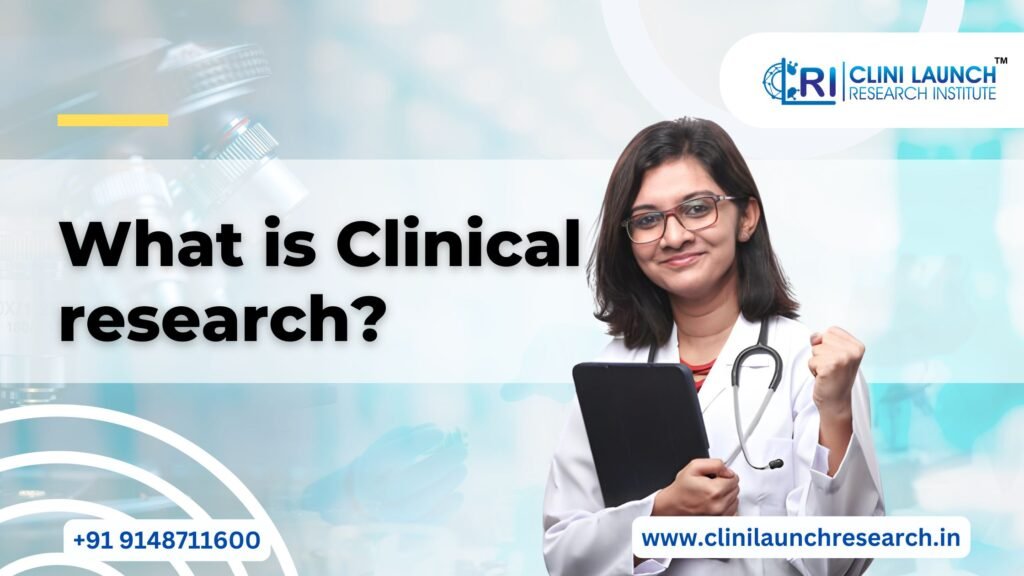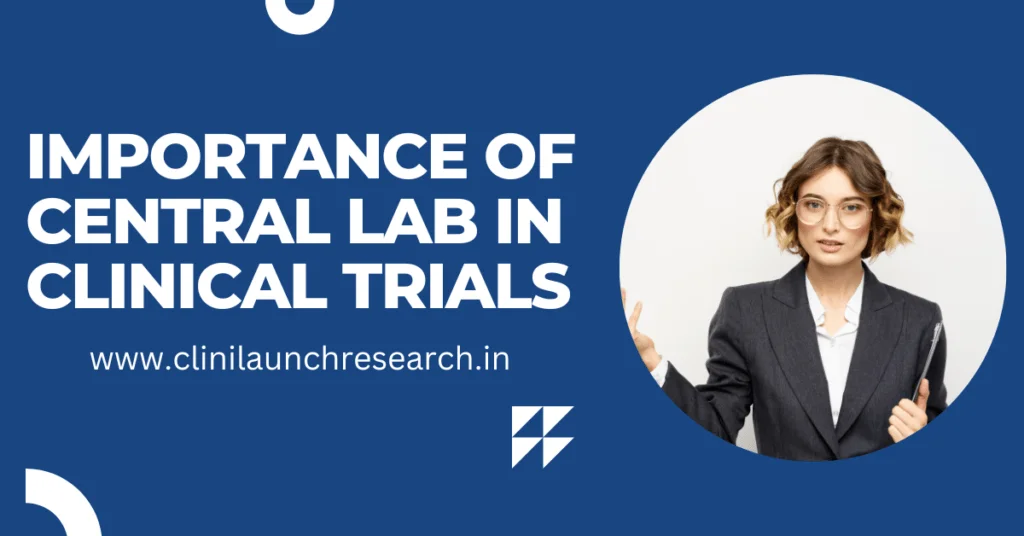Is Pharmacovigilance a Good Career Choice? Exploring Opportunities in Drug Safety Monitoring in 2024

Pharmacovigilance is the science of accessing, monitoring, and preventing the patient or participants from drug’s adverse effects. Is Pharmacovigilance a Good Career as it plays a very important role by ensuring the efficacy and safety from the multiple medicines. In the market, the demand for medicines is increasing daily. With the increase in the demand of medicines, Pharmacovigilance career prospects for professionals has also been on rise. Therefore, in this blog, we will gain deeper insights while exploring pharmacovigilance Career prospect for the future of drug safety. The role of Pharmacovigilance The people who are looking for a career in the pharmaceutical industry want to know- is pharmacovigilance a good career? The answer is yes, pharmacovigilance is a good career. Professional pharmacovigilance is responsible for accessing, monitoring, and preventing the participants from adverse drug effects or reactions. Pharmacovigilance career prospects will have to analyze data from post-marketing surveillance, clinical trials, and other sources that will identify adverse drug reactions (ADRs) while accessing the impact on patients for safety. It is one of the integral parts of the medicinal development process which ensures that the drug is effective and safe for patients. Career Prospects in Pharmacovigilance Pharmacovigilance professionals demand has been on rise due to multiple reasons. The increase in clinical research trials and new drug development led the pharmaceutical industry to demand more pharmacovigilance professionals. The pharmaceutical industry is the fastest growing industry with a rise in demand for drugs and drug safety experts on a global level. In the pharmaceutical industry, a wide range of career options are available for pharmacovigilance professionals. The professionals can work in different forms such as the drug safety departments, clinical research departments in various kinds of organizations, regulatory affairs, and contractual research organizations. Pharmacovigilance professionals are not limited only to the pharmaceutical industry but it has been also extended to the biotechnology industries and medical devices. Join CliniLaunch for your career growth as a pharmacovigilance professional. Pharmacovigilance Jobs for freshers In the pharmaceutical industry, the jobs of pharmacovigilance are on rise with the growing demand for freshers in the same field. The entry-level pharmacovigilance professional jobs may vary which depends on the company, location, and also based on the level of expertise. However, an average pharmacovigilance jobs for fresher salary could be around Rs. 2 Lakhs to Rs. 5.3 lakhs per annum with an average annual salary of 3.5 lakhs per annum. If the candidates have some kind of expertise in the pharmaceutical industry, the salary may go up based on industry standards.In addition to a competitive salary, pharmacovigilance jobs offer growth opportunities, and career advancement which makes it an attractive career option for freshers. Entry level Jobs in pharmacovigilance Entry-level jobs in the pharmaceutical industry is a great way to start your career as pharmacovigilance. Pharmacovigilance jobs usually require a degree in life science, pharmacy, or a related field. Most of the time, a common pharmacovigilance job entry level includes drug safety specialists, drug safety associate, and drug safety coordinator. The main responsibility of these roles includes accessing and monitoring adverse drug reactions along with database management, preparing safety reports, and ensuring compliance with regulatory guidelines. When a candidate gains experience, they can move up to a more senior level with additional responsibilities. The jobs of pharmacovigilance on entry-level offer a great starting for those candidates who are looking to build a career in pharmaceutical industry which provides ample growth opportunities and career advancement. Pharmacovigilance Jobs worldwide Pharmacovigilance is one of the vital components for healthcare systems and drug development worldwide. As it is important, multiple positions are available for pharmaceutical jobs worldwide. However, the level of responsibilities vary based on educational requirements and expertise in the same field. Yes, there are some common roles which are available in pharmacovigilance include drug safety associate, pharmacovigilance manager, medical reviewer, and pharmacovigilance scientist. The positions in pharmacovigilance can be found in multiple sectors that includes pharmaceutical companies, contract research organizations, academic institutions, and regulatory agencies. Moreover, pharmacovigilance jobs are in demand in many countries such as the USA, the United Kingdom, Germany, Japan, and India. Overall, pharmacovigilance jobs offer better prospects and career opportunities to the individuals who are interested to work in drug safety and public health. The future of pharmacovigilance The career in pharmacovigilance looks promising, as the increase in adoption of new technologies including the use of artificial intelligence, big data analytics, and machine learning. The advancement in technological aspects helps to improve adverse drug reaction detection, enhancement of the drug safety monitoring, and identification of safety concerns. The use and advancement of technologies in pharmacovigilance will create new career prospects for professionals with high levels of experience in these areas. Pharmacovigilance professionals can identify and analyze safety signals through artificial intelligence, data analysis, and statistics which is specified as their essential skills. Moreover, the future of pharmacovigilance involves integration and collaboration with other healthcare sectors. The phrase Is Pharmacovigilance a Good Career option for professionals where they need to work closely with regulatory compliance, medical affairs, and clinical research to ensure effective identification, evaluation, and management of ADRs. Simultaneously, pharmacovigilance professionals need to collaborate with healthcare providers, advocacy groups, and patients to ensure patient-centered care and improve drug safety. Therefore, the future of pharmacovigilance requires not only knowledgeable professionals in drug safety and regulations but it also requires excellent communication and collaboration skills to work efficiently across different sectors. Join CliniLaunch to develop and advance your career in Clinical Research. Conclusion In conclusion, the future of pharmacovigilance looks brilliant with the increase in demand of different professionals in the field. The rise in demand of drugs and safety regulations in the healthcare industry, the need for pharmacovigilance professionals also continues to grow is the best answer to “Is pharmacovigilance a good career.” Those individuals or candidates who want to grow their career in pharmacovigilance should consider acquiring the necessary skills and education in the healthcare industry. However, Staying up-to-date with the latest trends & development in drug safety, regulations and
What is clinical research?

What’s your first thought about taking a drug? RISK? Well-Being? Fear Of Side-effects? Carefree? Most people worry if a treatment works for them, does it work better than other treatments, does it have side effects. A one-stop solution to all our queries is Clinical Research. Developing a new medicine begins with understanding the disease or disorder and condition thoroughly. Clinical research provides clues about how to treat diseases and potential ways to study the symptoms or underlying causes. Researchers conduct preclinical studies on cells, tissues, and animal models, in a silico method to determine whether the condition can be influenced by medicine. Then a promising molecule or new chemical entity(NCE) becomes a “Drug” What is Clinical Research? Clinical research means conducting experiments on humans to validate new treatments, drugs, and medical devices for better health and care. Clinical research is building evidence for new approaches that are safe and effective. The goal of clinical research and clinical research professionals is to improve existing medical care and invent evidence-based, cost-effective treatments to improve quality of life. Clinical trials assess new formulations, technologies, and risk factors to be studied and perform interventional trials on human participants to confirm the therapeutic use, effect, and safety of new drugs before marketing approvals. Major Stakeholders of a Trial All stakeholders essentially need to come together to address increasingly diverse approaches, systemic barriers to participation, new technology innovations, and working on customised approaches in clinical research. It’s the era of effective and meaningful engagement, education, and multi-stakeholder partnerships that are critically important to achieve global clinical trials. India is emerging as the global development hub for clinical research and will continue to evolve in this area for the next decade as well. Clinical research regulatory framework changes have led to faster approvals and migration to digital technology for increased transparency and clarity. New Drugs and Clinical Trial Rules favour the current market trends for the development of clinical trials. The use of the internet and mobile has greatly flagged the way for tech driven clinical trials. Virtual monitoring and digitization have reduced the time taken for clinical research. Artificial intelligence has amplified human capabilities like smart advisors for scientists, robots, and computational creativity for designers. Regulatory authorities have widely approved and applauded. SPONSOR CRO Patients Investigators Regulatory Bodies Major Stakeholders of a Trial Patients or healthy people who participate in trials are volunteers. They can be patients with a disease or healthy people who want to help increase medical knowledge. Clinical Studies are executed in two types https://clinilaunchresearch.in/contact-us/ a) Intervention or Experimental b) Observational Clinical trials are usually conducted in three phases before regulatory agencies consider them safe and effective. Trials are also conducted according to ICH, Good Clinical Practice (GCP) guidelines that regulators require to protect patient safety. Phase I- a small number of participants, healthy human volunteers, or very sick patients for whom treatment options are lacking (life threatening disease) The main objective is the drug’s safety and to establish the maximum dose tolerated. Phase II (generally 20-300 depending on the type of disease) Therapeutic exploratory study is designed to evaluate the safety and efficacy of an investigational medicine in patients with underlying disease. Drug safety and effects to determine the safest and most effective dosing regimen. Phase III (300–3,000 or more depending upon the disease being studied) is designed to confirm the safety and efficacy of an investigational medicine. Results from phase 3 determine how the compound is best prescribed to patients in the future. Phase IV (Post-Marketing Surveillance, also called Late phase Trials) is designed to provide broader efficacy and safety information about the new medicine after Marketing Authorization in large numbers of patients, and subpopulations of patients for the long-term benefits and risks. Hope this helps readers understand the importance of taking part in clinical trials. The real word data (RWE) we contribute to the clinical research team greatly helps evaluate the efficiency of the new drugs. Being part of a clinical trial is being as proud as serving the nation. When a new drug hits the market one can proudly acclaim the contribution and passive rewards. The current time period of clinical research facilitates participants to take the informed consent documents home, read them over several times, and discuss them with their physicians and family members. Their physicians can help clarify some of the participation risks. Once participants review the informed consent documents carefully, they may provide free voluntary consent to the clinical trial. The benefit of clinical research participation helps patients get expert and in-person medical care at good infrastructure Hospitals. Helping others by contributing to medical research. Receiving a new intervention before it becomes available to the public and that works for you. https://clinilaunchresearch.in/courses/ If you are associated with the clinical research industry as a participant or a Clinical researcher or vendor be sure to solemnly follow quality, Integrity, and moral responsibility to vouch for a drug to your own family member!!!
IMPORTANCE OF CENTRAL LAB IN CLINICAL TRIALS

WHAT IS A CENTRAL LAB? Clinical trials and research are a developing and growing field. There was a need for a formal and rigorous way to collect, combine and report trial data from different clinical sites which helped develop the concept of a Central Laboratory for clinical trials. The main objective of a central lab was consolidation of the test results and data originating from different clinical sites. Thus, the central lab is the core of a clinical trial. A central lab as the name suggests is the laboratory where all the samples from the different clinical sites involved in a trial are sent in order to carry out the clinical trial. The central Laboratory involved in clinical trials are different for clinical testing laboratories which test patient samples for routine tests. These laboratories specialize in analysis for clinical trials in accordance with clinical study related regulations WHAT IS THE IMPORTANCE OF CLINICAL TRIALS? Any new development in the medical field whether in prevention, diagnosis or treatment started with a clinical trial. Thus, highlighting the significance of clinical trials. Without clinical trials there will be no development in this field. Clinical trials are carried out in various phases in order to maintain safety and in accordance with guidelines for trials. WHAT IS THE IMPORTANCE OF CENTRAL LAB IN CLINICAL TRIALS? The central lab is the head laboratory and most important for a clinical trial. The following is the importance of the Central lab in clinical trial as it is the main lab involved in the WHAT IS THE DIFFERENCE BETWEEN A CENTRAL LABORATORY AND LOCAL LABORATORY? central laboratory local laboratory It is a laboratory where all the samples from the clinical sites involved in a trial are sent. It is located close to the clinical trial site. Hence, each site will have a local lab for the testing Due to the presence of a single lab for various sites there are logistic problems with samples There are no logistic problems due to the presence of the lab in the vicinity. As there is one lab running the tests from various sites it ensures consistent results and analyses different local labs for different sites leads to inaccuracies due to different equipment; operating procedures; reference ranges; and reporting methods being used WHAT IS THE ROLE OF THE CENTRAL LAB IN CLINICAL RESEARCH? The central lab is involved in the complete project management. It includes the following:
